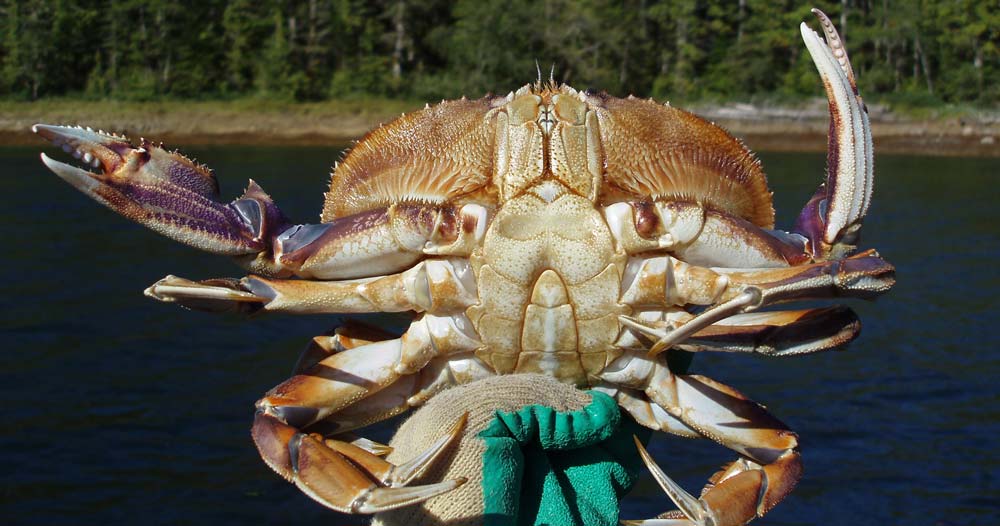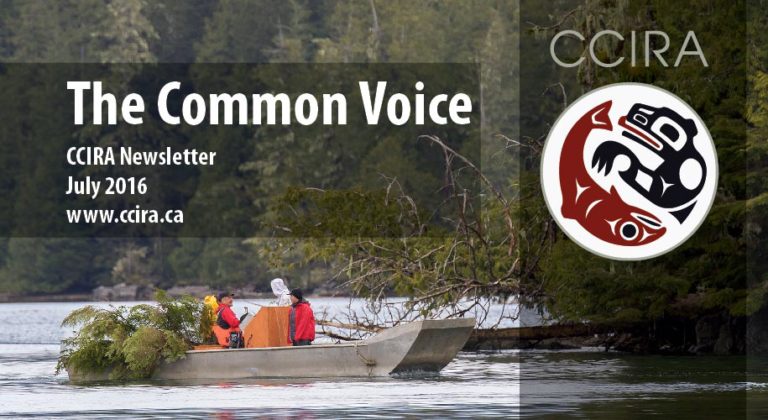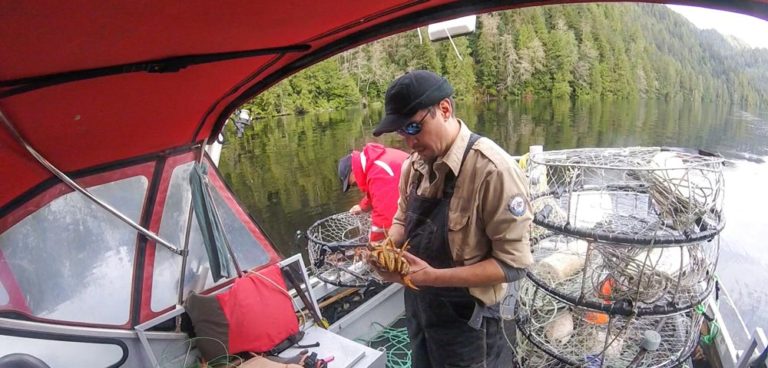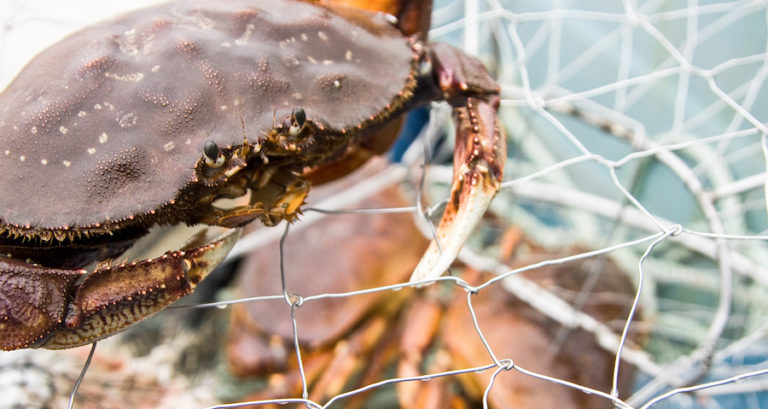Crabs, Conflict and Reconciliation

This spring there was a dispute in Nuxalk territory when commercial crab fishers began working within experimental crab fishing closures that were set aside under indigenous law for research purposes. The disagreement prompted a protest on the water with Nuxalk leadership and Stewardship staff threatening to pull the fishermen’s’ gear from the water.
Since the closures were put in place, the majority of commercial fishers have been respecting them. Unfortunately the Department of Fisheries and Oceans (DFO) has not enforced these closures, which was the root of the recent conflict. This incident highlights the need to establish government-to-government (G2G) decision making processes between our Nations and the DFO so we can avoid conflicts in the future.
Change through reconciliation
Protests on the water are not good for anybody. However, until a more inclusive decision making process is solidified, further conflict will likely be inevitable. And yet, despite the recent tensions, progress is being made.
Coastal First Nations Great Bear Initiative and the DFO are currently working on a reconciliation process, using crab, to test the G2G decision making structure. This non-treaty negotiation process is one way we hope to make headway towards shared decision making on marine resources. If this approach is successful for crabs we hope to use it as a template for co-management of other resources.
Even as conflicts arise they provide a chance to make things better. Coastal Nations and the DFO have shown a willingness to work together towards that goal. Success on this front will make things better for everybody.






